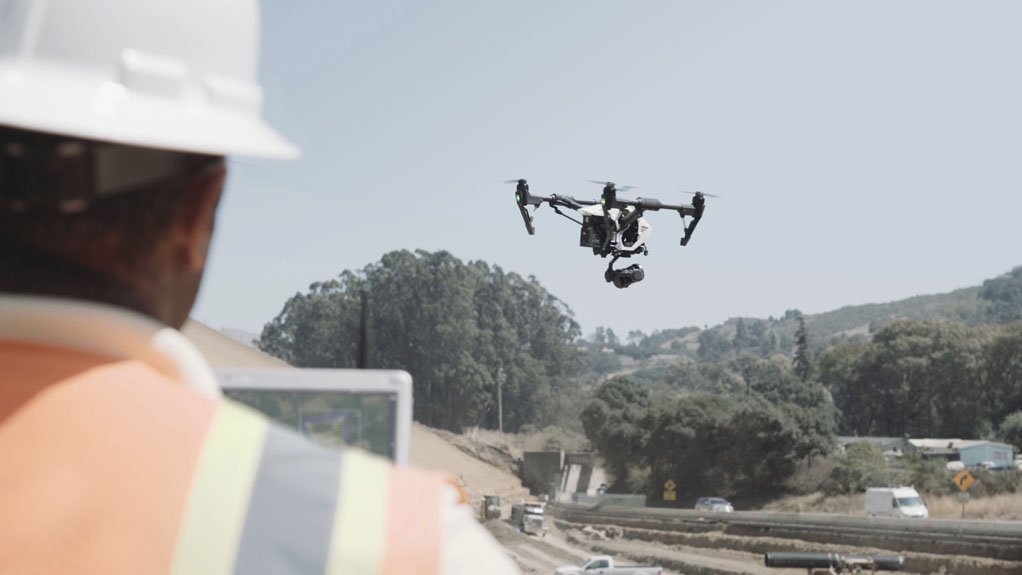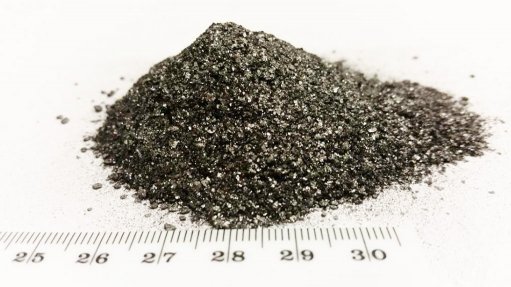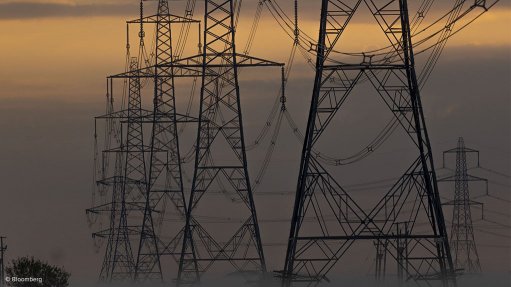Mineral scanner to facilitate identification of reactive ground


TECHNOLOGICAL PARTNERSHIPS The next step in the development process of adapting mineral scanning technology is the application of gathered data in conjunction with other technologies, such as drones
In another step towards safer blasting practice, Johannesburg-headquartered explosives and services supplier BME is adapting its XRF Delta Pro mineral scanner to quickly identify reactive-ground conditions that could lead to blast site incidents.
“This can give us real-time information that eliminates the need for expensive lab tests and avoids having to wait weeks for the results,” says BME blasting engineer Victor Krause, noting that there is potential for sulphides contained in rock to react with the nitrates in explosives – possibly causing the emulsion to deflagrate or detonate prematurely in the blast hole.
The term reactive ground is commonly explained as a spontaneous exothermic reaction after it comes into contact with nitrates. The reaction of concern involves the chemical oxidation of sulphides (usually of iron or copper) by nitrates and the liberation of potentially large amounts of heat. The process is unpredictable and can be so violent that it results in premature or unplanned initiation of explosives.
Long-term solutions to avoiding reactive ground involve International Organisation of Standardisation (ISO) thermal testing, when drilled core samples are available. This test will predict reactive ground in advance and should be done whenever possible, says BME, which serves Africa’s mining, quarrying and construction industries.
“[Testing for reactive ground] can be done days before explosives are pumped into the blast holes, so that the correct procedures are followed should reactive ground be discovered in the blasting area,” highlights Krause.
The XRF Delta Pro mineral scanner, which has many mining and geological applications, including mineral identification, works in conjunction with a Trimble global positioning system, updating coordinates with scanned results and building a reference database.
“This database will assist in indicating whether there is a history of reactive ground at [a] specific mine,” says Krause, adding that BME plans to use this data to create a world map that identifies reactive ground zones with full information and support.
The next step in the development process, he says, will be to apply the gathered data in conjunction with other technologies, such as using ISO thermal testing, drones and borehole cameras with thermal scanning technologies to advance the identification process in the field of reactive ground.
BME has already developed a specialised emulsion type for use in reactive ground.
Focusing on safety, security of supply and value-adding technical services, BME aims to remain at the forefront of technology by regularly participating in the research and trials of new blasting techniques and products, as well as attending and presenting at technical conferences worldwide.
BME has operations in over 23 countries, including Australia, Singapore, Indonesia, Columbia and 14 countries in Africa, which inlcude Botswana, where it is represented by Cobus Meyer.
Comments
Press Office
Announcements
What's On
Subscribe to improve your user experience...
Option 1 (equivalent of R125 a month):
Receive a weekly copy of Creamer Media's Engineering News & Mining Weekly magazine
(print copy for those in South Africa and e-magazine for those outside of South Africa)
Receive daily email newsletters
Access to full search results
Access archive of magazine back copies
Access to Projects in Progress
Access to ONE Research Report of your choice in PDF format
Option 2 (equivalent of R375 a month):
All benefits from Option 1
PLUS
Access to Creamer Media's Research Channel Africa for ALL Research Reports, in PDF format, on various industrial and mining sectors
including Electricity; Water; Energy Transition; Hydrogen; Roads, Rail and Ports; Coal; Gold; Platinum; Battery Metals; etc.
Already a subscriber?
Forgotten your password?
Receive weekly copy of Creamer Media's Engineering News & Mining Weekly magazine (print copy for those in South Africa and e-magazine for those outside of South Africa)
➕
Recieve daily email newsletters
➕
Access to full search results
➕
Access archive of magazine back copies
➕
Access to Projects in Progress
➕
Access to ONE Research Report of your choice in PDF format
RESEARCH CHANNEL AFRICA
R4500 (equivalent of R375 a month)
SUBSCRIBEAll benefits from Option 1
➕
Access to Creamer Media's Research Channel Africa for ALL Research Reports on various industrial and mining sectors, in PDF format, including on:
Electricity
➕
Water
➕
Energy Transition
➕
Hydrogen
➕
Roads, Rail and Ports
➕
Coal
➕
Gold
➕
Platinum
➕
Battery Metals
➕
etc.
Receive all benefits from Option 1 or Option 2 delivered to numerous people at your company
➕
Multiple User names and Passwords for simultaneous log-ins
➕
Intranet integration access to all in your organisation



















